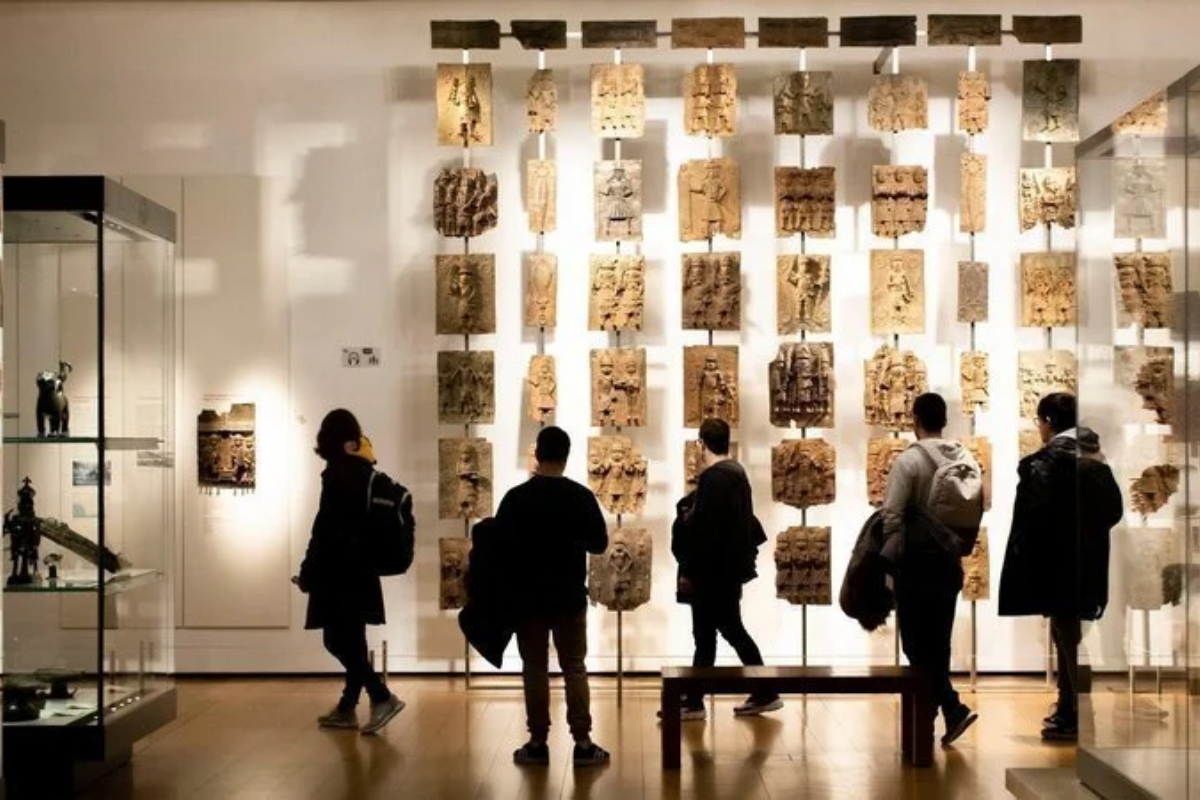Donald Trump’s arrest photo becomes popular item
Donald Trump's arrest photo becomes a popular item. The unexpected merchandise frenzy...

British Museum recovers 2,000 stolen treasures
Roughly 2,000 treasures believed to have been taken from the British Museum were mentioned by chairman George Osborne, who also noted that some of these items have begun to be reclaimed.
Acknowledging the museum’s tarnished reputation, the former chancellor admitted the need to rectify the situation, stating that efforts will be made to resolve this issue.
A prominent authority on stolen historical artifacts, speaking to the BBC, expressed astonishment at the staggering quantity of items that have gone missing from the museum.
A museum employee suspected of being linked to these incidents has been dismissed from their position.
The museum’s director, Hartwig Fischer, has announced his immediate resignation following the acknowledgment that the mishandling of a 2021 investigation took place. This announcement was made on Friday.
The renowned cultural institution in the UK, known as a top-tier museum, has been facing challenges ever since it announced earlier this month that several valuable artifacts were either “missing, stolen, or subject to damage.”
The objects in question ranged in age from the 15th Century BC to the 19th Century AD and had been primarily preserved for academic and research intentions.
Mr Osborne – who was appointed as chair in June 2021 – told BBC Radio 4’s Today programme : “We believe we have been the victim of thefts over a long period of time and frankly more could have been done to prevent them.”
Asked where the missing items were located, he said “some members of the antiquarian community are actively cooperating with us” and that recoveries so far were a “silver lining to a dark cloud”.
He said he was confident that “honest people” would return items found to have been stolen, but acknowledged that “others may not”.
Established in 1753, the British Museum has gathered a collection of approximately eight million artifacts, yet as of 2019, only about 80,000 were accessible for public viewing, while the remainder was stored in archives.
Mr. Osborne mentioned that not every item had been “adequately categorized and officially recorded” and hinted that “someone knowledgeable about unregistered items has a significant advantage in their removal.”
The museum is collaborating closely with law enforcement, Mr. Osborne remarked, including that a meticulous investigative effort is ongoing to ascertain the exact extent of the losses. He noted the necessity for enhanced security measures at the museum.
“It has certainly been damaging to the British Museum’s reputation, that is a statement of the obvious, and that is why I’m apologising on its behalf,” Mr Osborne added.
A man has been interviewed by Metropolitan Police detectives over the missing items but no arrests have been made.
High-ranking individuals within the museum have been working urgently to confront their approach to managing the revelation of the disappeared artifacts, following revelations that apprehensions regarding possible thefts were initially raised two years ago.
Mr Osborne said “more could have been done” after theft concerns were first raised in February 2021.
Asked why they were not taken seriously, he said he did not believe there was a “cover-up” at the top of the museum, but said it was “possible” that “groupthink” among senior staff meant they “could not believe that there was an insider” stealing treasures.
Christos Tsirogiannis, a forensic archaeologist who chairs a Unesco group dedicated to illicit antiquities trafficking, described the thefts as the worst in modern history.
He told BBC News: “It is by far the biggest theft that I know about from a museum, especially for one of this calibre.
“It’s a massive amount for any museum, but this happening at the British Museum makes it even worse.”
Catch all the Business News, Breaking News Event and Latest News Updates on The BOL News
Download The BOL News App to get the Daily News Update & Live News.